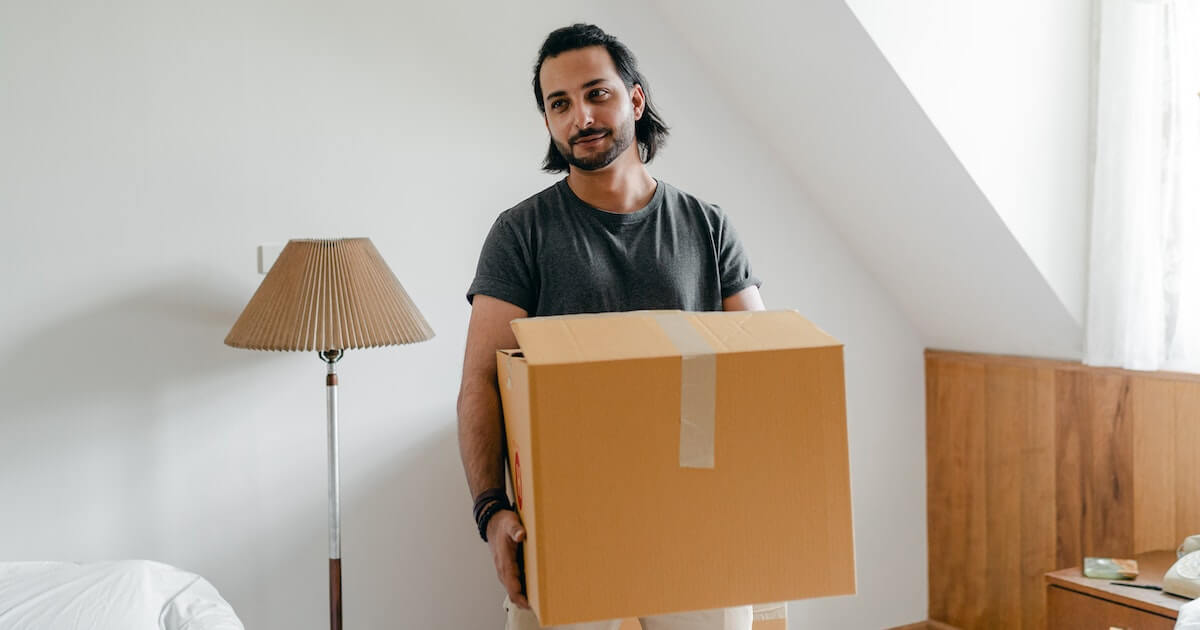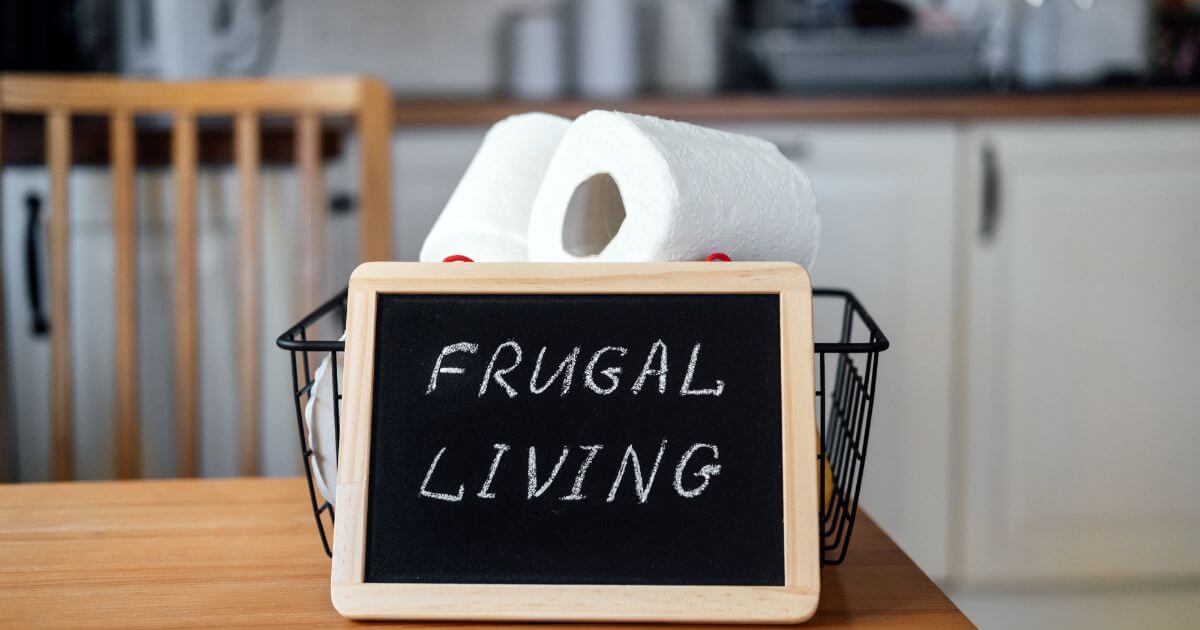How To Move Out With No Money in 2024

This post may contain affiliate links which means that sproutinue.com may make a small commission at no extra cost to you. We only promote products that we love and feel will benefit our readers. Please read our Disclosure Policy for more information.
Are you considering a change of residence but unsure about the process? Have you been planning to move out of your parents’ house but keep postponing because you’re broke?
While moving out can sometimes be challenging, it’s possible to relocate even if you don’t have any money. Plus, you can gain valuable financial insights along the way.
So whether you’re feeling pressured by your parents to move out or it’s a personal decision, this post is here to assist you.
In this article, I’ll guide you on how to move out with no money. Additionally, I’ll share some helpful tips for settling in after you make the move.
How To Move Out With No Money
The idea of taking on the responsibility of paying bills on your own after leaving your parents’ house can be overwhelming.
Even worse is relocating to a different state or city without money or a job.
Fortunately, I have some helpful tips on how to move out without money to avoid accumulating excessive debt along the way.
1. Set a Timeline for Moving Out
The first step to moving out with no money or job is determining why you want to move. This has a great impact on your timing.
If you aim to secure your living space away from your parents’ house, you can establish a flexible deadline since it may not be urgent.
On the other hand, if you’re compelled to move due to a toxic environment or potential harm, you may need to accelerate the process for your safety.
Based on the specific motivation for your relocation, it’s essential to establish a timeline for moving out. This timeline will serve as a guide for the subsequent steps you need to take.
2. Create a Realistic Budget
Once you’ve set a timeline and know when you expect to move, create and stick to a realistic budget.
Budgeting helps to track your expenses and determine exactly how much money you’ll need for the move.
Take into account various expenses that you’ll incur during your move. Here are a few examples:
- Transport costs
- Rent
- Storage costs
- Packing materials
- Furniture cost
With all your expenses listed, estimate the total cost to determine how much you need to save before your deadline.
You may also need to evaluate your current financial situation and cut back on costs wherever possible to maximize your savings.
If you have no money at all, keep reading for valuable tips on improving your moving experience.
Extra Reading – The Best Budgeting Tips for Beginners
3. Ask For Help
If you plan to move out without money or a job, don’t be too embarrassed or afraid to ask your family and friends for financial assistance.
You can approach them and request a loan. This way, you can utilize the borrowed funds to facilitate your move and repay them once you’ve accumulated enough savings.
However, if your family and friends are unable to provide financial support, there are still numerous ways they can assist you.
For instance, they might have spare boxes or packing supplies that could significantly reduce your packing expenses.
Additionally, you can inquire if they have furniture or household items they no longer need, which could help set up your new place.
Finding a friend who owns a truck you can borrow to transport your stuff is even better. This would substantially cut down on transportation costs.
4. Get Rid of Stuff You Don’t Need
To reduce the cost of moving, get rid of a few items you don’t need. Consider donating or giving away unwanted stuff to reduce the bulk of items you’ll take with you.
You can also sell your stuff on apps like Mercari, eBay, or Craigslist to raise some cash.
To sell your items successfully online, ensure you take clear pictures and provide detailed descriptions so buyers know what they’re buying.
Remember to set realistic prices. Look up similar products to see how other sellers are pricing them. Factor in any seller fees and shipping costs to avoid incurring a loss.
If you want to avoid the hassle of posting and listing items online, consider organizing a yard sale.
5. Look for Free or Discounted Moving Options
Another way to move out without money is to find free or discounted moving options.
As I mentioned earlier, you can find a friend or family member who owns a truck you can borrow.
You can also look into companies offering carpooling and rideshare services or extending student discounts.
Another option is to rent moving containers or pods since they’re more cost-effective than hiring a full-service moving company.
An added advantage of moving containers is that you won’t have to bear labor expenses since you can pack and unpack when you wish.
6. Find Affordable Housing
Moving to a new city with no money can be scary. If you cannot immediately afford your accommodation, consider the option of couch surfing at a friend’s place.
If you don’t have friends in the city you’re moving to, plenty of companies can link you to people willing to host you temporarily. You can stay with a host before you get your own place.
However, keep in mind that couch surfing isn’t a long-term solution. You’ll need to get your own place sooner or later.
Before moving out, find affordable apartments or housing options in your new city. Another way to reduce housing expenses is searching for a roommate to share the cost of rent with.
7. Find a Job
If you have no money to move out, try to find a job to generate cash to cover the moving expenses.
If you already have a job but still can’t afford to move out, consider working extra hours or starting a side hustle to help you raise enough money to move.
Furthermore, having a steady income, even if temporary, can be beneficial when searching for a house or room to rent, as most landlords require proof of income.
Remember, the goal is to secure a means of earning enough money to move out and obtain suitable housing. It doesn’t necessarily have to be a permanent job.
8. Search For Free Stuff
Another helpful tip is to search for free items, such as furniture, if you plan to move out without money.
There are numerous sites like Facebook or Craigslist where people give away items they no longer need, many of which are still in excellent condition.
You can also find free items on your area’s “dump your stuff” day. Contact local authorities to find out when the next dumping event is scheduled.
Tips After Moving Out
Moving out can be a daunting experience regardless of your financial situation.
Now that the challenging part is over, focusing on attaining financial stability as soon as possible is crucial.
Once you’ve settled into your new home, finding ways to generate income and live within a budget is essential.
This will enable you to save money, repay any loans you may have, and secure a stable future.
Here are a few valuable tips to keep in mind as you embark on your journey to your new home or city.
Find a Job or a Side Hustle
The first step to ensure you find your footing and become financially stable in a few years is to find a job or start a side hustle.
Begin by searching for job openings within the new area and submitting applications. If you want a flexible job, plenty of side hustle ideas are worth exploring.
For instance, if you have a vehicle, consider starting a delivery gig where you fulfill orders and deliver food and other household items to customers.
Most driving apps that pay may require you to be at least 18, but some, like Amazon Flex, have an age limit of 21 years.
Whether you’re looking for a full-time job or a side hustle, this option is excellent. You can also deliver for multiple companies simultaneously to maximize your earnings.
Here are some of my favorite apps that pay you to drive:
- DoorDash: This is one of the most popular delivery companies in the U.S. DoorDash is a great option, especially if you lack a car but have a scooter or bicycle. You can earn between $15 and $25 per hour delivering food to people in your area.
- Instacart: This is another famous delivery company where you can expect to earn about $24 per hour as an Instacart shopper.
- Amazon Flex: Deliver Amazon Flex blocks to people in your city and make $18 – $25 per hour.
- Shipt: Like Instcart, you get paid to shop for groceries and deliver them to customers.
If you’re an avid gamer, there are several gaming apps that pay. These apps pay you to play popular games, including:
- Solitaire Cash
- Solitaire Clash
- Cash Giraffe
- Money Well
- Card games
- Puzzle games
- Word games
Generally, these apps pay you to download and play new games on your phone. They pay you in coins or gems, which you can redeem for gift cards or PayPal cash.
While game apps won’t make you rich or replace your day job, they’re a great way to make extra dollars in your free time.
Consider trying other get-paid-to sites that let you make money online by completing simple tasks like answering surveys, shopping, and playing video games.
They include:
- Branded Surveys
- InboxDollars
- YouGov
- Swagbucks
- Survey Junkie
- Toluna
Find Free Furniture and Household Items
You’ll need to furnish your home to make it cozy and habitable. Saving up for a new bed or couch may take a long time, especially if you haven’t got a job yet.
Consider looking for places or people willing to give up their furniture for free. Most people may want to declutter their homes or upgrade to a better furniture set.
You can find offers for free stuff on platforms like Facebook or Craigslist. Contact the local area council to find out when the next “dump your stuff” event is scheduled.
You may find good items that are still in good condition.
Another way to get free household items is to ask your friends and family. Getting free items will enable you to save money and focus on other financial issues.
Live Below Your Means
Another vital tip to remember after moving house is to live below your means, especially if you still don’t have a job.
Living below your means enables you to cut down on expenses, especially unnecessary costs. This allows you to become financially disciplined until you get a sound footing.
Here are some of the ways you can cut costs:
- Prepare food at home instead of eating out
- Give up TV or share the streaming service with someone
- Use public transport or walk
Note that living below your means will require you to create a budget and stick to it. Also, save as much as possible towards repaying outstanding loans or purchasing household items.
Extra Reading: The Cheapest Way to Live
Don’t Rely on Credit Cards
Credit cards may make you make unnecessary purchases since they’re an easy way to spend money you don’t have.
To instill financial discipline and secure your future, you must use credit cards less or stop using them altogether.
If you use credit cards often, keep track of your purchases and spending habits. Check your credit card statement monthly to keep track of your debts and when they’re due.
Build an Emergency Fund
Building an emergency fund early will help cushion you in unexpected events.
As you decide how much you’re willing to put aside and the interval, you need to know what kind of emergency you’re saving towards.
If you’ve moved to a different city, you may need to save more than if you moved to a place near your friends and family.
Whether you have a job or not, you should always have money aside for emergencies.
Find Other Ways to Save
Besides conventionally putting away the excess, there are plenty of ways to save money. If you don’t have excess funds to accumulate, consider finding other ways to save.
For instance, a great way to save money is to use online cashback apps that allow you to earn cashback when you shop.
Here are some cash-back apps worth considering:
- Rakuten: This is one of the best cashback apps today. It allows you to get up to 10% cash back when you shop online.
- Ibotta: This platform allows you to earn up to 30% cash back on groceries, household items and brands, and gift cards.
- Honey: This app helps you save money by applying coupon codes to your cart items.
- Pogo: Automatically helps you save on bills, insurance, and bank fees. Pogo also pays you to share your data.
- Capital One Shopping: Another cashback app worth exploring. Like Honey and Rakuten, Capital One Shopping automatically applies coupon codes to your shopping.
Another way to save money is to quit addictions that cost you a lot—for example, alcohol and smoking.
Also, if you often forget to save, consider trying automatic savings. In this case, your bank automatically transfers money to your savings account after a set duration.
Frequently Asked Questions
How Can I Move Out When I Have No Money?
Moving out without money is possible as long as you start planning early.
First, you’ll need to set a timeline for moving so that you know exactly when you want to move.
Secondly, set a realistic moving budget and stick to it. A budget lets you track your moving expenses and avoid making unnecessary purchases.
Once that’s done, get rid of things you don’t need to reduce moving costs. You can donate or sell them on platforms like Facebook Marketplace or eBay.
If you want to move out with no money or job, find free or discounted moving options like borrowing a truck from a relative. Try to acquire free packing supplies from your family.
Also, ask your family or friends to give you any household items they don’t need. This will significantly reduce the cost of furnishing your new house.
I Need to Move Out But Have Nowhere to Go?
If you need to move out abruptly but have nowhere to go, here are a few things you can do:
- Find a local shelter
- Couch surf at a family member’s or friend’s place
- Contact homeless organizations
- Find a job or vocational training that offers to house
- Contact local community groups for assistance
- Get in touch with social services organizations
How Much Money Do You Need To Move Out?
The amount you need to accumulate before you move out depends on several factors, such as the location you’re moving to and what you’re carrying.
If you have a few items, you’ll spend less than if you have to move with many household items. A great way to cut costs is to minimize your stuff.
Generally, if you plan to move out, you need to save at least $3,000 to $10,000.
How Much Money Should I Save Before Moving Out?
You need three months’ worth of expected living expenses stashed away.
You need to save at least $3,000 to $10,000 before moving out, although the amount varies depending on your location and luggage size.
How Do I Get Money To Move Out?
If you want to move out without money, there are several ways to get the money you need.
One of them is to save money to cover moving expenses. You can save by putting extra cash away or using cashback apps when shopping.
Another way to get money to move out is to find a job or start a side hustle. You can work for delivery apps such as DoorDash and Instacart to earn some cash.
You can also get money to move from friends and family. Ask them to lend you the money then you can repay once you settle into your new place.
Final Thoughts
Whether your parents want you to move out or it’s your decision, moving out with no money is possible.
As long as you manage your little finances wisely, find ways to cut back on expenses, and live below your means, you can manage to move successfully.
Moving out without money won’t be easy, but once you make it work and become financially stable, you won’t regret it.
Happy moving!




